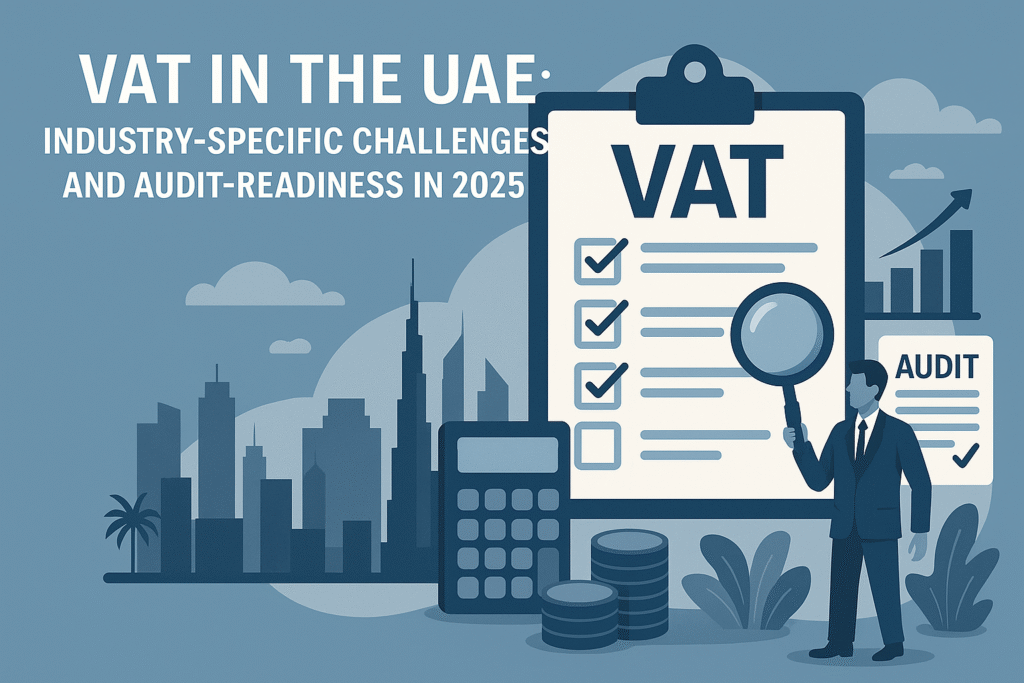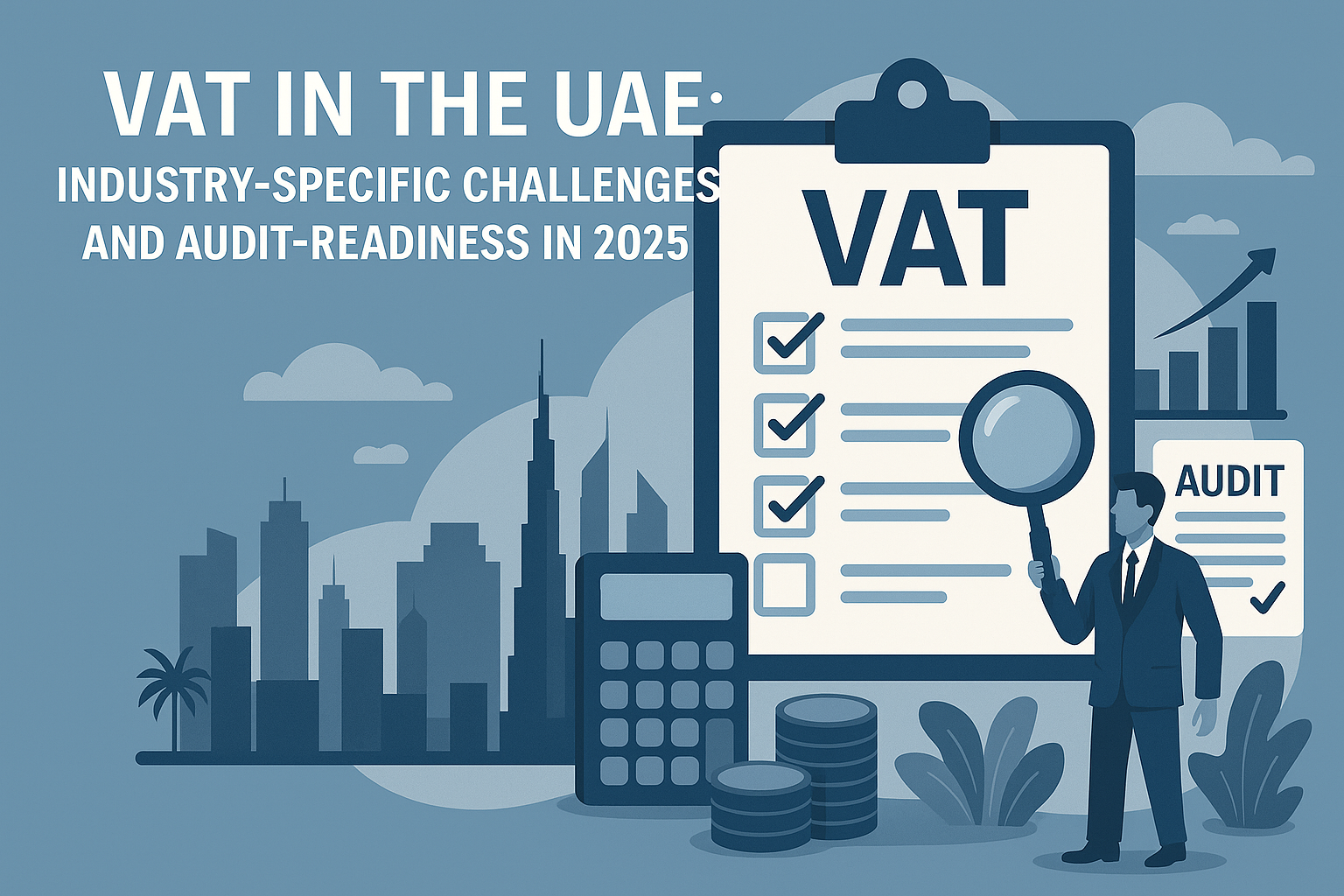VAT in the UAE: Industry-Specific Challenges and Audit-Readiness in 2025

Introduction VAT in the UAE:
Since the rollout of Value Added Tax (VAT) in 2018, the UAE has consistently improved its VAT governance framework. With FTA audits intensifying in 2025, businesses must adopt tailored approaches based on industry-specific VAT complexities
Industry-Specific VAT Challenges:

1. Real Estate:
Key Challenges
- First sale of residential property: 0% VAT
- Commercial property: 5% VAT
- Confusion in mixed-use developments
Audit Tip: Ensure robust project documentation, including tax clauses in contracts and input VAT allocation methods. Conduct periodic self-assessments to prepare for surprise FTA audits.
2. E-Commerce:
Key Challenges
- VAT applies to goods sold within UAE
- Import VAT on cross-border goods
- Obligation to issue digital tax invoices
Audit Tip: Maintain accurate transaction logs and ensure platform-based sellers are properly registered—Automate VAT reporting where possible.
3.Free Zone Businesses
Key Challenges
- Misunderstanding of Designated Zones vs. Non-Designated Zones.
- Confusion over treatment of intra-zone supplies and exports.
Audit Tip: Clearly map out supply chains and maintain documentation proving goods/services left the UAE, especially for zero-rated exports.
4. Healthcare & Education
Key Challenges
- Determining the eligibility for zero-rating or exemption.
- Hybrid entities offering both taxable and exempt supplies face apportionment issues.
Audit Tip: Ensure service classification is accurate, and document eligibility for reliefs thoroughly. Use separate cost centers for exempt vs. taxable supplies
5.Retail & Hospitality
Key Challenges
- Managing VAT on discounts, vouchers, and promotional schemes.
- Tourist refund schemes and eligibility tracking.
Audit Tip: Use VAT-compliant POS systems, and reconcile refund claims regularly. Train frontline staff on tax documentation for tourism transactions.
5. Financial Services:
Many services are VAT-exempt, but mixed supplies must be accurately apportioned
Best Practices for VAT Audit Readiness:
- Maintain organized records for input/output VAT
- Use FTA-accredited accounting software
- Conduct regular VAT health checks with tax advisors
Preparing for 2025
- Revisit tax codes, invoice formats, and filing schedules
- Conduct staff training for compliance accuracy
- Align internal controls with FTA audit expectations
Conclusion:
As the FTA steps up its audit activities in 2025, VAT compliance is no longer just about filing returns—it’s about industry awareness, digital readiness, and strategic planning. By addressing sector-specific challenges and strengthening internal controls, UAE businesses can stay audit-ready and avoid costly penalties.


